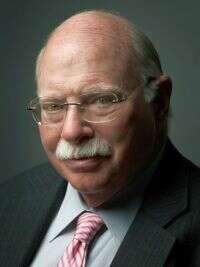Michael Steinhard
American entrepreneur Michael Steinhard showed up in several directions: hedge fund management, investing, journalism and philanthropy. He is described as one of the outstanding graduates of the Wharton School of Business and a pioneer among hedge managers. In the well-known financial bestseller “Money More Than God,”S. Mallaby notes that Steinhard has become “a true legend in the history of hedge funds: it has partly facilitated trading successes, partly by his personal qualities.”
Early Years and Education
Trader Michael Steinhard got away from the best start in life. His father, Sol Frank Steinhardt, suffered from gambling and often left large sums of money in underground casinos. His disastrous addiction led him to acknowledge the wrong life decisions: he contacted the mafia, began selling stolen jewelry, and soon ended up in prison. The difficult situation in the family did not prevent Michael from educating and getting out to people. He graduated from the University of Pennsylvania in 1960 and worked for calvin bullock mutual fund and brokerage firm Loeb, Rhoades and Co.
, a personal acquaintance with criminal boss Albert Anastasim and “mafia accountant” Meer Lansky, initially reflected the reputation of his father Michael Steinhard. In the 1960s, there were rumors that his start-up capital consisted mainly of cash provided personally by Saul Steinhard.
Career Development
Working as an analyst at Loeb, Rhoades and Co., Michael Steinhard focused on the conglomerate and Gulf’Western share trading, which later became part of Viacom. In the late 1960s, his savings were enough to help set up a hedge fund. Working with Salomon Brothers and businessman Jack Osz, he created Odyssey Partners. Taking control of investor funds, Steinhard fetched 15% (later 20%) Investors. annual profit. Minus the commission, the clients of the fund received about 24-25%.
Allegations of manipulation
After several decades of successful business trader Michael Steinhard and his company have been accused of illegal manipulation of the bond market Treasury. As a result, the financier had to pay 75% of the seventy million dollars in fines out of his own pocket. However, such losses were not so large against the background of 600 million profits obtained from the trading of treasury certificates. Recalling the incident in his autobiography, Steinhard insists that he did not break the law and paid the fine “in order to quickly close the case and continue.” In 1995, the fund ceased operations, bringing a good profit to investors and managers.
In 2000,
A brief departure from large-scale financial transactions after the closure of the fund lasted until 2004, when Michael Steinhard was offered to work for Index Development Partners, Inc . In December 2012, the company had $18.3 billion under management and its average monthly profit margin was 10%. In addition, since 2010, the financier has been hired to manage one of IDT Corporation’s projects to invest in alternative energy sources.
Philanthropy, Collections and Journalism
Trader Michael Steinhard collects works of art and works permanently with christie’s auction house.
1 01000
Trader Michael Steinhard collects works of art and works continuously with Christie’s auction house. In 2001, he published his autobiography NoBull: MyLifeinandoutofMarkets. He is also known as a philanthropist who donated more than $125 million to charity.
Post by appeared first on The Globe Trader.
